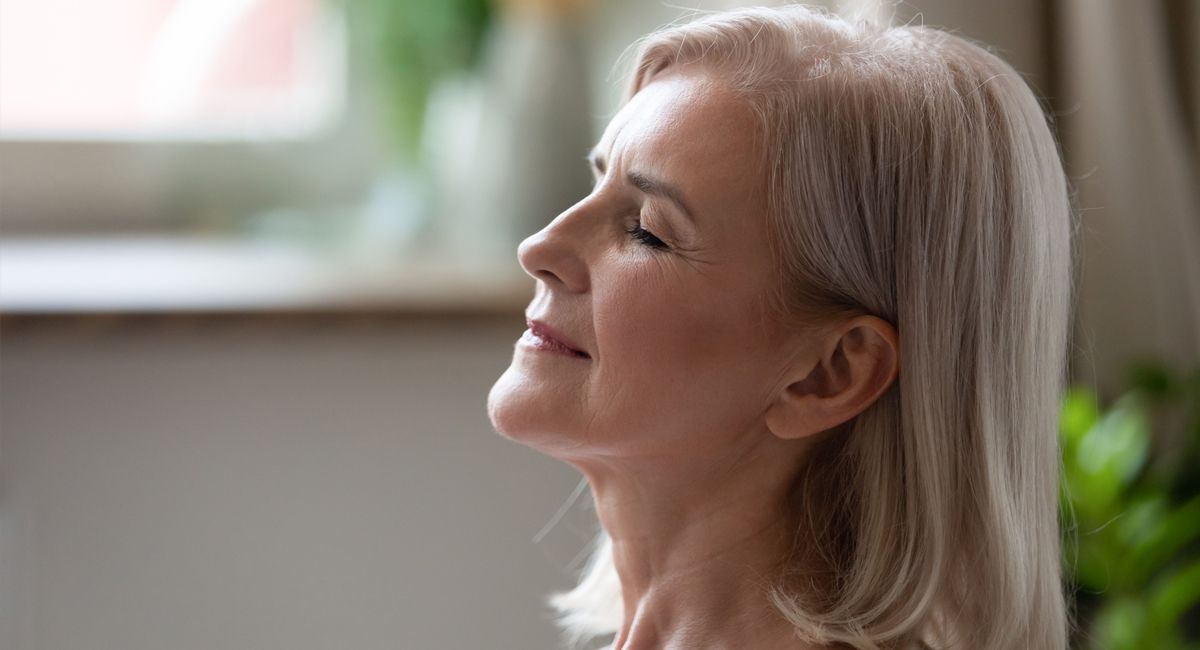
We are all now in a febrile state over Covid, everyone claiming that everyone else is wrong.
Celebrities (who might have marched against the censorship of McCarthyism back in the 1950s) are now clamoring for the censoring of Covid ‘misinformation,’ and they’re getting trolled with threats by those who don’t agree.
Views about Covid have become so highly politicized that anyone (including scientists and university professors) simply raising questions about the official line is demonized as a member of the far-right, and families are ostracizing other family members who decide against vaccination.
Things have gotten completely out of hand.
It’s time to take a big exhale.
Not only is all this anger bad for the country—it’s also terrible for everyone’s health.
Dr Quinton Fivelman, the Chief Scientific Officer at London Medical Laboratory, announced that he’s seen some 19 percent more men and women with significant hormone imbalances—in both reproductive and thyroid hormones—than before the pandemic.
He attributes it to stress and fear over Covid, lockdowns and enormous changes to routines.
Now, it could also be the result of Covid itself or even the Covid vaccine—but at least some of it is likely to be caused by feelings of anger and powerlessness against them—‘them’ being anyone who doesn’t happen to agree with your point of view.
In our feature in this issue (page 48), journalist Justin Ballis writes about the dangers of “rumination”—chewing over an ongoing anger or grudge.
One of the many effects of elevated cortisol caused by constant anger is an upset in the balance of cytokines in the immune system. And the right balance of cytokines happens to be exactly what you need to fight Covid.
Getting angry over Covid . . . may make us more susceptible to the harmful effects of Covid.
Anger is also bad for our hearts, our brains—you name it.
But Ballis’s story is also about the healing effects of forgiveness over a long-standing hurt—even, in this instance, over a long-standing difference of opinion.
As directors of the Social Healing Project, James O’Dea, former director of the Washington, D. C. office of Amnesty International, and Dr Judith Thompson spent 10 years cohosting “compassion and social healing dialogues,” in which warring members of highly divided social and political groups—Republican and loyalist Northern Irish, Turkish and Greek Cypriots, Israelis and Palestinians—met in an attempt to reconcile and forgive.
O’Dea believes that deep dialogue is the most powerful of healers because it allows each to acknowledge the deep truth of an experience.
O’Dea discovered the power of deep truthfulness during a social-healing meeting that included Mary Rothchild, the daughter of a Holocaust survivor, and Gottfried Leich, who’d been a member of the Hitler Youth during the Third Reich in Germany.
Early in the dialogue, Rothchild turned to Leich and said, “There are many people in my extended family who were killed in the Holocaust. What was your role in it?”
Oh, I beat up a few people and set some buildings alight on Kristallnacht, he replied, referring to the “Night of Broken Glass” in 1938, when Nazi storm troopers smashed thousands of Jewish homes, shops and synagogues.
“But I was only sixteen,” he shrugged.
“So, if you had been 10 years older, would you have taken my relatives to the gas chamber?”
she asked.
Leich took a very long time to reply. “I just don’t know,” he said finally.
Oh, God, he seemed to be thinking, I could have been a mass murderer.
Then he broke down and cried. “I am a grandfather, and my grandchildren are the grandchildren of the Nazis. I am in the abyss, the dungeon of history. I always will be connected with this.”
His complete candor released something inside of Rothchild. She stood up, walked over to him and took his hand.
“Yea, though I walk through the valley of the shadow of death,” she whispered to him, “I will fear no evil for thou are with me.”
According to Judith Thompson, forgiveness in Greek literally means “untying a knot,” so both sides are free from hurt to carry on with their lives.
As philosopher Hannah Arendt once wrote, forgiveness is a “constant mutual release.” Both sides learn to understand each other’s pain, and mutually liberate each other from hurt or guilt.
Seen through this perspective, a disagreement as we’re having with Covid is an interrupted connection, and forgiveness a re-establishment of the connection.
Only history will finally sift between what is true and what is false in Covid, what is actually “misinformation.”
It won’t be arrived at by suppressing dissenting voices. For two years, our job at What Doctors Don’t Tell You has been to scrutinize what governments tell us, what the science says and to try to discern some semblance of truth between the two.
To do so, we’ve needed to offer up what you’re not hearing from politicians and the medical establishment.
But if a Jew and a former Hitler Youth Movement member can heal their terrible division during a single conversation, so can all of us over Covid.
It’s not only good for the soul, it’s essential for our future health—not to mention our ability to fight Covid.
But first we need to start talking to each other—and allowing others to speak.
And then we all have to start listening.